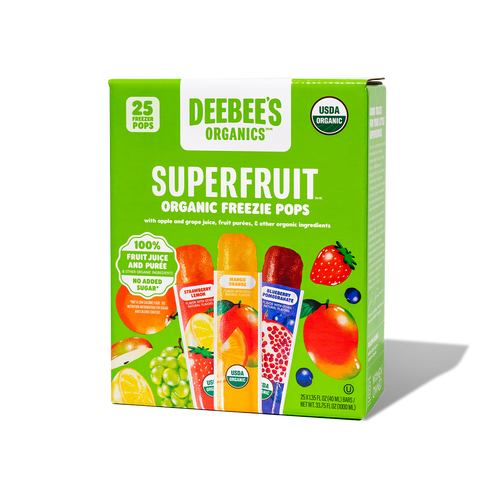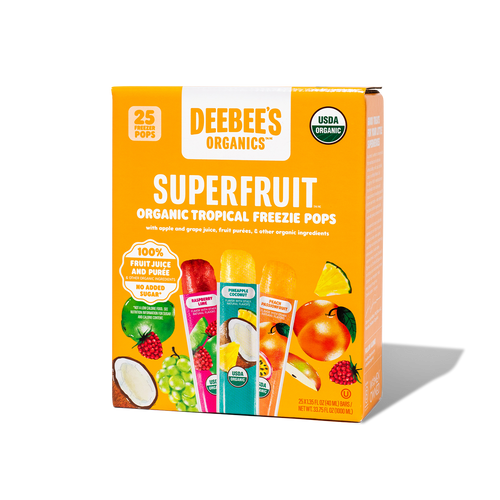We believe strongly in the importance of organic food. Organic food is better for us, better for the people who farm it and their families, and better for the planet (and therefore our children’s future). This is why we use organic superfruit in our freezies, and it’s why we regularly use our blog to share tips and tricks on how to get more organic food into your diet (like by embracing seasonal eating, as well as frozen food).
Another great way to enjoy more organic food? By planting your own organic garden! With the first day of spring just around the corner (March 20!), here are some organic gardening tips to help get you started.
Why Plant An Organic Garden
Before we get into our organic gardening tips, let’s explore why you’d want a food garden in the first place.
There are so many reasons to make the switch to organic food. It’s GMO-free, chemical- and pesticide-free, better for the environment, and better for our health in general. Of course, that doesn’t mean it’s better for our wallets. So one solution is to grow your own organic food!
But of course, your garden likely won’t be big enough to sustain your family. So perhaps the best reason to plant an organic garden is because it’s a fun activity to do with your children, and a great learning opportunity, too.
We all want our children to get outside more, spending more time in nature and in the beautiful sunshine. What better way to do this than in their own garden, which they can help plan and plant and cultivate? It’s great for their self esteem, and for their self expression as well. In fact, we highly recommend you check out this resource on how to help children engage with gardens in a way that boosts their physical, emotional, and mental health.
While you plan your garden, include your child. Yes, it can be a great lesson in ecology (be sure to talk about how your garden supports local pollinators who really need the help!). But it’s also an opportunity to talk to them about your values—and to show them how you can put your values into practice.
Organic Gardening Tips
It’s not necessarily harder to grow an organic garden, but it does take a little more planning. So if you’d like to have an organic garden this summer, now’s the time to start!
First, you have to think about what you would like to grow, and what you can actually grow. Hopefully, there’s lots of crossover here!
To figure out what you can grow, you need to first look at your hardiness zone (find it here).
Then, you need to figure out where you will be planting your garden, to determine how much sunshine you get. A patch of land, a raised planter, a pot in your window sill—anything can work, as long as you pick the right plant for the space and environment!
One of the most important elements of any garden is its soil - learn more about how to prepare your garden’s soil for planting to make the most of your harvest!
Finally, it’s ok to start small. You don’t need to be able to feed a small army—especially when you’re just starting out. Try to find easy crops that you’ll enjoy with your family, even if you just get a small yield your first season.
Our Favorite Plants for New Gardeners
- Kale
- Lettuce
- Spinach
- Basil
- Mint
- Green Beans
- Carrots
- Radishes
- Cucumbers
- Peppers
- Strawberries
- Cherry Tomatoes
Try to find something from this list that works in your hardiness zone, make sure you do a little research, and you should be good to go! Good luck and happy gardening!





